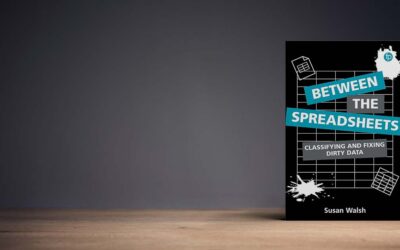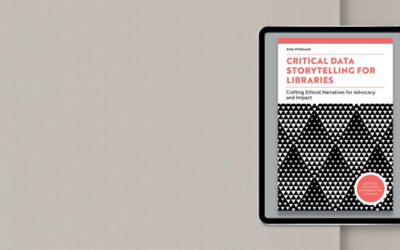Special Library Reference Interviews: Basics of a Neglected Professional Skill

Stephen Abram
I worry that the foundational skill of professional librarianship is being neglected to the point of extinction. When I interact at conferences or teach LIS students, I always ask them how much reference interview training they’ve received by second year. Sadly, the answer is too often ‘none’.
This appears to be the opposite of the wider professional conversation where peers decry the collapse of cataloguing courses. I find that is a disproved trope. Research and surveys commonly show that ‘cataloguing’ has grown—it’s just been reimagined and renamed as a wider set of multiple courses on metadata, taxonomies, technology applications, and more. As this transition took place, we were promised by library schools that they weren’t migrating away from the cataloguing foundations of information organization. In retrospect that appears to be true.
On the other hand, the human side of our profession—as represented by the core skill of reference interviewing, seems to be in real collapse.
I do my bit by asking my workshop classes about their training. Invariably I end up teaching a short 90-minute introduction to reference interviewing as part of my workshop on ‘the library as conversation’. It fits, but I have to teach this skill to build on the wider foundations of community conversations and understanding library users and members.
Wikipedia’s definition of the reference interview is unsatisfactory to me – especially in a special library context:
OMG! A Reference Desk?! Who needs that to engage with users? Our challenges are far greater in the digital world. Even when I entered special librarianship in the Pre-PC age [1980], most of my queries came in via telephone conversation. Indeed, I was taught to use forms – imagine that! No busy special library user would love that bureaucratic nightmare. We were all about personal (and professional) service.
Professional special librarians’ most important core asset isn’t ‘information’ and the access thereto. That’s important and valuable but it’s also insufficient. Our core skills are the skills and competencies required to improve the quality of the question. That skill is embodied in the skills taught and learned through special library reference interviewing—in school and on the job. We call it the practice of librarianship because we get better (maybe even great) with practice.
So, what are the basic skills of special library reference interviewing that we need to remind ourselves about? Building on the too light Wikipedia entry:
“The reference interview is structured to help the librarian provide answers to the library user. In general, the interview is composed of the following stages.
- Welcoming
- Gathering general information from the user and getting an overview of the problem
- Confirming the exact question
- Intervention, such as giving information, advice or instructions
- Finishing, including feedback and summary”
I would add another step critical to special library work and users
- Follow through.
The State Library of Iowa also has a The Steps of the Reference Interview webpage. The steps are:
- Approachability
- Interest
- Listening (Characteristics of a good listener)
- Interviewing (Discovering what the client really wants)
- Searching
- Answering
- Follow-up
I’ll emphasize that unlike many library reference situations, in special libraries our goal is often a long-term or project-based relationship—so that path is more circular.
Again, it’s worth a read but seems mired in the older context of in-person relationships, short, simple answers, and transactional delivery of the artifacts of print. Some reference interviews do model this behaviour but my own experience in special libraries is that this type of largely step-and-fetch-it service has gone the way of the Dodo. Today we’re more likely to be working with and in teams; more likely to seek digital resources; more likely to need to package and add value to our responses; and often, in our professional context, need to consider the cost-value benefit(s).
The National Archives of the US has a decent document Guidelines of the Successful Reference Interview from American Library Association
Lili has a short free informational course on open-ended questions. As special librarians are aware, a good reference interview is the appropriate combination of closed and open-ended questions.
So, let’s tidy up our understanding of this fundamental skill of our profession. Let’s practice open-ended, closed and neutral questioning. Let’s try not to assume too much or too little. Learn how to clarify; learn to build your relationship skills through reference interviews. In many respects, when we engage this skill we demonstrate the value of interacting with an information professional!
Why is this important in a Digital Age?
When we build, implement and introduce digital solutions for finding information to support our users’ decision-making and learning goals, we’re not designing for desktops. We’re designing for humans. If we don’t understand their needs and help refine their questions, we run the risk of bad answers. And that would be sad.
“Dewdney, Patricia and Gillian Michell. “Oranges and Peaches: Understanding Communication Accidents in the Reference Interview.” RQ 35.4 (Summer 1996): 520-36. 15 Mar. 2004.
Ross, Catherine Sheldrick. “The Reference Interview: Why It Needs To Be Used in Every (Well, Almost Every) Reference Transaction” Reference & User Services Quarterly 43.1 (Fall 2003): 38-43. Academic Search Premier.
“Tips Toward Good Telephone Etiquette.” The Human Resource Aug. 2000. 15 Mar. 2004.
You may also want to checkout the following page for “fun” rather than a required reading.
New Jersey State Library. “Reference Humor.” Fun For Bookworms. 30 June 2000. 15 Mar. 2004.
“Weird Reference Questions.” June 16, 2000. 15 Mar. 2004.”
-Stephen

Stephen Abram
Stephen Abram is a popular Lucidea Webinars presenter and consultant. He is the CEO of Lighthouse Consulting and the executive director of the Federation of Ontario Public Libraries. He also blogs personally at Stephen’s Lighthouse. Check out his new book from Lucidea Press, Succeeding in the World of Special Librarianship!
Never miss another post. Subscribe today!
Similar Posts
Library Instruction: Learning Styles Are Out, Evidence-Based Practices Are In
For instructors and educators of all types, it’s vital to realize that evidence-based practices are more effective than catering to the myth of learning styles.
Interview with Susan Walsh:
Dirty Data, AI, and the 2nd Edition of “Between the Spreadsheets”
Author Susan Walsh discusses the new edition of “Between the Spreadsheets,” sharing insights on fixing dirty data, AI’s impact, and her COAT framework.
Interview with the Author:
Dr. Kate McDowell on Storytelling for Libraries
Dr. Kate McDowell shares how data storytelling helps libraries advocate, counter misinformation, and build trust for future generations.
4 Library Marketing Strategies Every Special Librarian Can Use
Whether you manage a corporate, government, or nonprofit library, knowing how to promote your services is essential for visibility and impact.




Leave a Comment
Comments are reviewed and must adhere to our comments policy.
0 Comments